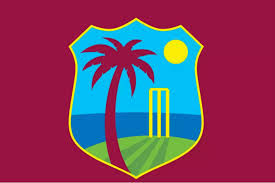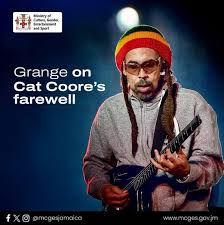The Decline of West Indies Cricket: A Tale of Missed Opportunities and Systemic Failures
- Yaawd Media

- Jul 18, 2025
- 4 min read

The recent collapse of the West Indies cricket team- being bowled out for a mere 27 runs by Australia in the second innings at Sabina Park, marks the lowest second-innings total in Test cricket’s 140-year history. This humiliating defeat is a stark reminder of how far West Indies cricket has fallen since its golden era, when they dominated the sport for 15 years . Ironically, almost exactly 30 years ago, on the same ground, that the West Indies suffered a rare Test series loss to Australia, signaling the beginning of the Regional team's decline, and the start of the longest losing streak for any professional team in global sports. The Beginning of the End
It was the 4th Test match of the 1995 West Indies home Series v Australia, played at Sabina Park from April 29 - May 3rd. I watched the match from the Kingston Cricket Club's pavilion where I was a Member. The Aussies had dismissed the West Indies for 265 and were on 173 for 3 when wicketkeeper Courtney Browne dropped a sitter from Steve Waugh off Kenny Benjamin's bowling. Waugh later told a group of us at the club, days later, that he had turned to Browne and said "You just dropped the Test Match, bloke."
Australia then went on to pile up a mammoth 531 all out, built on the backs of a partnership of 201, between brothers Mark Waugh 124, and Steve Waugh who finished on 200 not out. They then skittled out the West Indies for 213 runs to claim an innings and 51 run victory. In the process they captured the coveted Frank Worrel Trophy 2-1.
From then, it has been all downhill for the West Indies as the rot that had been festering among the team and its Regional administrators for years simply metastasized. Since 2000, the team has lost over 40 Test series as opposed to 23 Series wins mostly against the weakest teams Zimbabwe and Bangladesh collectively accounting for 11 of those wins.

From Dominance to Despair
From the latter part of the 1970s to 1980s, the fearsome pace batteries supported by the temperament of Greenidge and Haynes, the swagger of Viv Richards, and the tactical genius of Clive Lloyd; the team dominated world cricket for nearly two decades. But since the mid-90s, the decline has been steady and painful. Poor administration, lack of investment in grassroots cricket, and the lure of T20 leagues have all played a part. However, one of the most persistent and damaging issues has been insularity and regional politics.
The Curse of Insularity
West Indies cricket has long been plagued by inter-island rivalries that dated back to the 1940s, where team selection was often seemly influenced by regional bias rather than merit, with players from certain territories favored over others. This cliquish mentality increased in prominence from the 1990s and has served to weaken team cohesion as well as to stifle talent development. Instead of uniting under one banner, the Caribbean’s cricket culture remains fractured, with individual boards often prioritizing their own interests over the greater good of West Indies cricket.
A Failing Governance Structure
Cricket West Indies (CWI), the governing body, has repeatedly failed to address these systemic issues. While other nations have invested in academies, modern coaching, and player development programs, the West Indies have lagged behind. The board’s inability to retain top players, many of whom are forced to choose franchise leagues over international duty, which speaks to a deeper problem: a lack of vision and leadership. According to Dr. Kishore Shallow, president of Cricket West Indies (CWI), the regional game’s governing body has convened a meeting to review the recent Australian Test series. “To strengthen the discussions, " he sated, " I have extended invitations to three of our greatest batsmen ever: Sir Clive Lloyd, Sir Vivian Richards, and Brian Lara. They will join past greats Dr. Shivnarine Chanderpaul, Dr. The Most Honourable Desmond Haynes, and Ian Bradshaw, who already serve on the committee. “While disappointment is natural, we must not allow this moment to define our journey. We are in a rebuilding phase, steadily investing in the next generation, and reigniting the spirit that has long made West Indies cricket a force in the world."
One wonders what this meeting really intends to achieve, as going forward is impossible without recasting a complete blueprint for the regions game which has to include deeper investment in the game from the pre-teen level devoid of the problematic insularities that has dogged the region for decades.

Remove Sammy Furthermore, the heaping of so much responsibility on Darren Sammy who was at best a mediocre player to serve as coach, selector and everything else in between must be recognized as a gargantuan error that must be immediately addressed.

Is There Hope for Revival?
Despite the gloom, there are flickers of hope. The rise of young talents like Shamar Joseph, who inspired a historic Test win over Australia earlier this year, shows that the raw ability still exists. But for a true resurgence, West Indies cricket needs:
A merit-based selection system, free from regional politics.
Stronger domestic structures to nurture talent.
Better financial incentives to keep players committed to Test cricket.
A unified vision from CWI, focusing on long-term growth rather than short-term fixes.
Final Thoughts
The West Indies’ record-low 27 all out is more than just a bad day at the office—it’s a symptom of decades of neglect and mismanagement. If Caribbean cricket is to rise again, it must confront its internal divisions and rebuild from the ground up. Otherwise, the once-mighty West Indies risk becoming a permanent footnote in Test cricket’s history books.



Comments